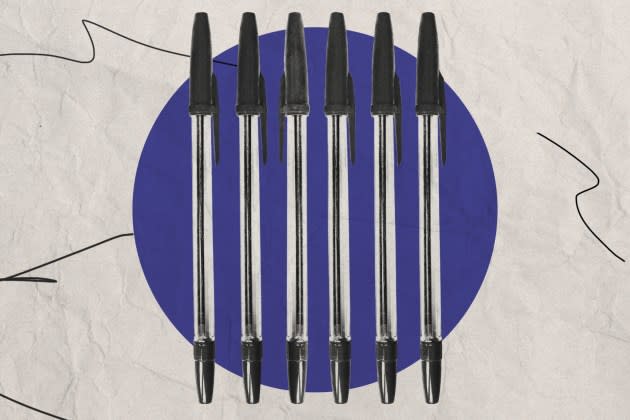Writers Guild Says It’s Pushing to Prohibit AI-Generated Works Under Contract in Negotiations

While the Writers Guild of America is at the negotiating table with studios and streamers hammering out the industry’s approach to this evolving technology, the union has clarified its stance on works created with the help of artificial intelligence.
The guild stated that it is seeking in these talks to ban AI from being used as source material and AI-written works and AI-rewritten works from being covered under its contract; the union also wants to preclude AI-created writing from being considered for credits. The guild additionally seeks to prohibit writers from being assigned “AI-generated material to adapt” and is also looking to prohibit “AI software generat[ing] covered literary material.”
More from The Hollywood Reporter
Reality TV Workers Launch Union Drive at 'The Kitchen' and 'Trisha's Southern Kitchen' Producer
'SNL' Strike Threat Lifted for Now as Postproduction Workers Reach Tentative Deal With Management
Austin City Council Member to SXSW: Do Right by Artists Who Are Raising Pay Issues
The guild wrote in its statement, “The WGA’s proposal to regulate use of material produced using artificial intelligence or similar technologies ensures the Companies can’t use AI to undermine writers’ working standards including compensation, residuals, separated rights and credits.”
The union compared its approach to an appropriate use of AI under the collective bargaining agreement to a studio “point[ing] to a Wikipedia article, or other research material, and ask[ing] the writer to refer to it.” The union added, “But, like all research material, it has no role in guild-covered work, nor in the chain of title in the intellectual property.” In a final note, the union added, “Its output is not eligible for copyright protection, nor can an AI software program sign a certificate of authorship. To the contrary, plagiarism is a feature of the AI process.”
It remains unclear how the Alliance of Motion Picture and Television Producers (AMPTP), which is at negotiations with the writers, will take to this proposal.
Since March 20, the guild has been negotiating its latest film and television agreement with the AMPTP at the latter’s headquarters in Sherman Oaks. Amid the rapid rise of AI chatbots like ChatGPT, the guild has noted that regulating the emerging technology is on its list of agenda items in addition to more traditional matters like raising wage floors and changing feature writer deals.
The statement arrives just days after performers’ union SAG-AFTRA, the entertainment industry’s largest labor group, issued its own viewpoint on artificial intelligence and digital doubles in the entertainment industry, an issue that has prompted great anxiety among union members. “The terms and conditions involving rights to digitally simulate a performer to create new performances must be bargained with the union,” the guild stated. “In addition, any use or reuse of recorded performances is limited by our collectively bargained contract provisions, including those requiring consent and negotiation of compensation.” SAG-AFTRA further claimed that “to attempt to circumvent SAG-AFTRA” and negotiate directly with performers would violate the National Labor Relations Act. SAG-AFTRA is expected to attempt to address this issue in its own contract negotiations this summer, before a June 30 pact expiration date.
The release of a free prototype of Open AI’s product ChatGPT in November 2022 has sparked heated debate within the industry. The technology can produce short scripts and help writers — albeit in a limited way — with pitches, outlines, loglines and general idea generation. Writers who spoke with The Hollywood Reporter earlier this year said the technology in its current form did not pose a major threat to their work, but could be used as a potential creative tool.
“Do I see this in the near term replacing the kind of writing that we’re doing in writers rooms every day? No, I don’t,” said Big Fish writer and Scriptnotes podcast host John August, who is also a member of the WGA’s 2023 negotiating committee, at the time. Still, he added, “There certainly is no putting the genie back in the bottle. It’s going to be here, and we need to be thinking about how to use it in ways that advance art and don’t limit us.”
Meanwhile, the U.S. Copyright Office has so far resisted attempts to protect works created by artificial intelligence. Still, copyright and trademark litigation specialist Joel Feldman told THR earlier this year that the office might be more open to granting protections to works with a human co-author. “If you fed your favorite 25 songs into an AI machine, and it spit out a new work never before heard, there’s certainly a claim that your selection of those 25 songs is human authorship,” he said.
Both management and labor are expected to continue talks until April 1, when a brief break will occur, and then continue before the Writers Guild’s current contract expires May 1.
Best of The Hollywood Reporter

